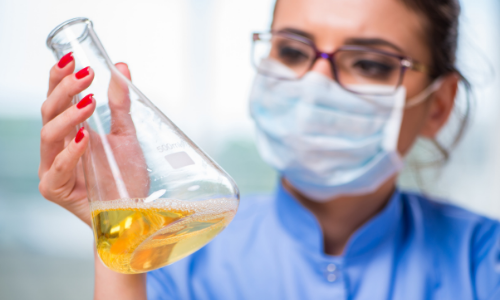Workplace Chemical Hazards and the Reproductive Health
Tuesday, March 22, 2022
Where you work, how you work, and what you work with can affect your reproductive health or your family’s health. Women’s fertility and menstrual function can be affected by some workplace hazards.
More concerning is that there are around 800 artificial EDCs in everyday items, such as plastics of food containers, personal care items, and food products.
Chemicals and bad working conditions hurt women by causing problems with monthly bleeding, complications of pregnancy, miscarriage, or the health of the baby. Chemicals are also linked with cancers in the breasts, womb, and ovaries. Chemicals that hurt people’s reproductive health affect women more than men because women’s bodies do more of the work of reproduction.
Women working in the health care sector are exposed to many different potentially harmful chemical agents including disinfectants, anesthetic gases, and drugs.
How Can Workplace Chemicals Cause Reproductive Health Problems?
Workplace hazards can lead to reproductive health problems for women, as well as issues in conceiving a child, carrying a healthy fetus to term, and developmental defects in the unborn child.
Some reproductive health effects caused by workplace chemicals can include:
• Reduced fertility or infertility.
• Menstrual cycle and ovulation disorders.
• Miscarriage.
• Stillbirth.
• Babies born too soon or too small.
• Damage to the woman’s eggs.
• A change in the hormones needed to regulate the normal menstrual cycle and uterine growth.
• Birth defects.
•Child developmental disorders

The following tips are useful for cutting back on exposure to a broad range of EDCs.
1. Avoid microwaving plastic food containers or putting them through the dishwasher. Phthalates and BPA in plastic food containers may get into your food when you heat the containers. Instead, microwave food in microwave-safe glass or ceramics.
2- washing fruit and vegetables and buying them from known (local) sources reduce your intake of pesticides, fungicides, herbicides, and chemicals that may have been sprayed on the plants.
3- eating fewer processed, canned, pre-packaged foods reduces your intake of BPA, phthalates, and plasticizers that coat the inside of cans or those absorbed from plastic wrappings.
4. Counteract the effect of EDCs by getting enough folic acid through your diet or supplements like prenatal vitamins. Two studies show that high levels of folic acid can protect against the negative effects of BPA or phthalates in people with ovaries who are trying to conceive without assistance or through IVF. Some of the most folate-rich foods are spinach, asparagus, Brussel sprouts, and liver.
5. Look for EDC-free personal care products that you’re using or thinking about buying. And reading the labels on all personal care products such as cosmetics, shampoos, conditioners, hair colorings, body washes, etc, and choosing those that are free of parabens.
6- Reading the labels on all food products and avoid those with additives, preservatives, and anti-bacterial agents.
7- Avoid handling sales receipts or storing them in your wallet. The thermal coating contains BPA to give them their shiny plastic texture.
8- Avoid air fresheners, smoke, strong chemicals, heavily perfumed products, plastic smells, and fumes.
9- Avoiding the use of pesticides and herbicides in the garden, at work, or in the home.
10- Drinking water/soft drinks out of glass or hard plastic bottles, not soft plastic bottles. BPA, phthalates, and other plasticizers are used to make plastics in bottles flexible.







